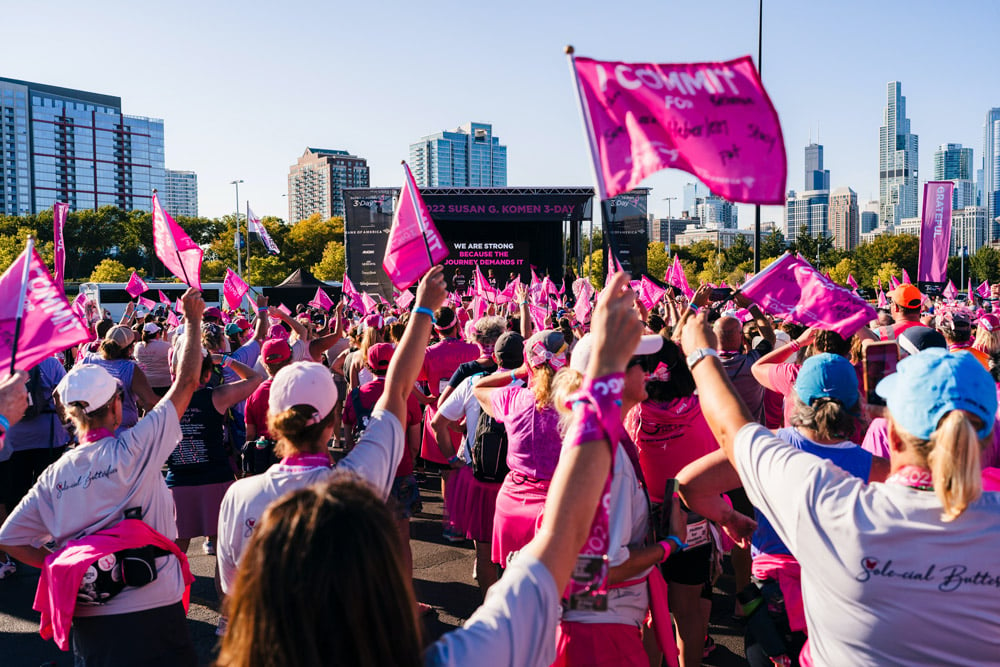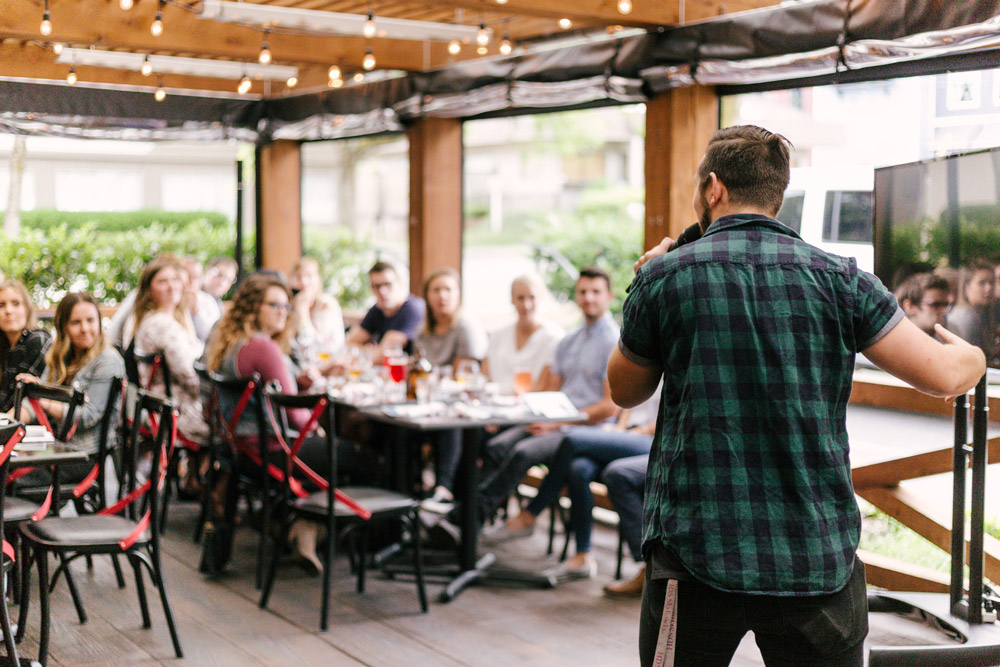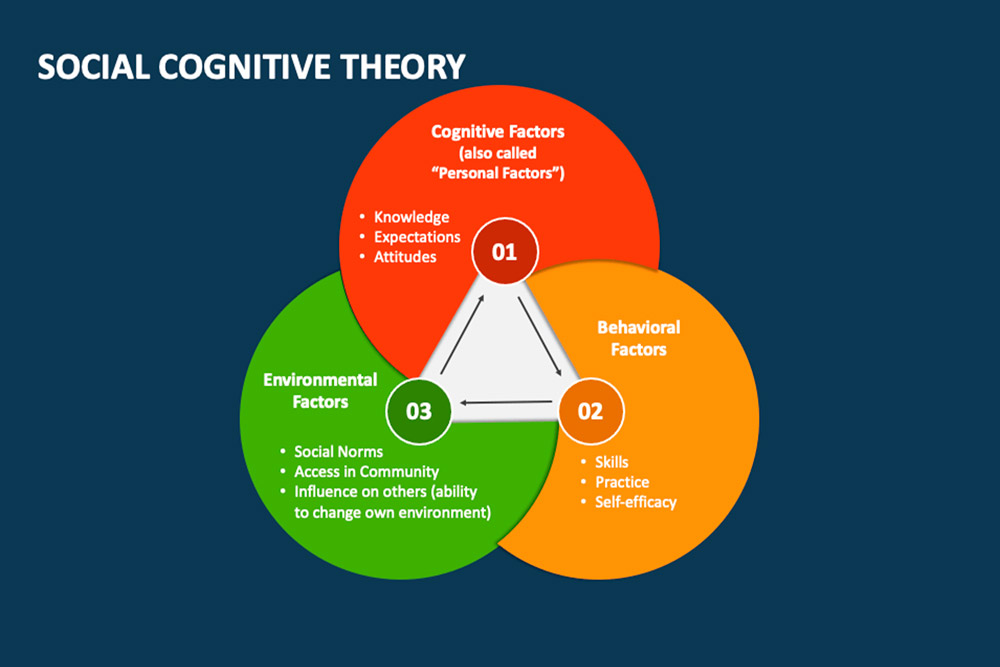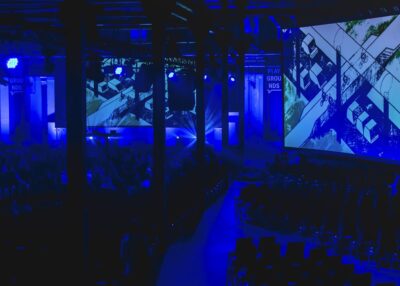5 Psychological Tips To Convince Consumers to Attend an Event
You’ve spent months putting everything into planning an upcoming event. From the venue to guest speakers, catering, and a user-friendly website, you’ve dotted every I and crossed every t. Despite your efforts, event registration numbers aren’t what you had projected. What are you doing wrong?
As an event organizer, you want to ensure that your event is successful and attracts a high turnout. To do this, you will need to have an effective and engaging marketing plan that reaches the right people and encourages them to attend. But, having an email and social media marketing campaign isn’t enough. You need to show people WHY they should attend your event.
In this article, we'll discuss how you can use psychology to convince consumers to turn up for your event. From understanding the power of persuasion to utilizing the latest social media trends, we'll provide you with a range of strategies that you can use to make people attend your events.
So, let's get started!

1. Utilize Social Norms
“...you have to give a message that is appealing to the audience, to the people that you're talking to, that resonates with them, and that also gives them the information that they, in particular, are interested in hearing about.” ~Jeni Cross
Did you know that approximately 90% of consumer decisions are based on emotions?
While we might be persuaded by education and reason, we are motivated by our feelings and social norms. Knowing this, combined with a deep understanding of your target audience, can be a powerful tool. Let’s look at a couple of things to keep in mind when appealing to your audience:
-
Humans are loss averse - According to Dr. Cross, humans respond more to the idea of what they might lose, rather than what they stand to gain. Simply reframing your language, in order to show your audience what they will miss out on by not attending your event, could triple your attendance.
- Different audiences need different information - Consider Jeni’s heavy drinkers vs. light drinkers poster example. In this case, we have two posters geared toward two different groups of people. Each poster has slightly different information. While a difference of 6% might not sound like much to many, this slight difference was enough to resonate with both target audiences. Knowing your audience, their values, and what drives them goes a long way in building trust.
2. Fear of Missing Out
Picture this - you’re considering attending a concert but are on the fence. Suddenly, you see a “low ticket alert” post. You immediately race to the ticketing site to purchase your ticket before the show is sold out. Event promoters used the human fear of missing out to influence you to attend their event. Quite effectively, we might add!
Let’s look at a few tactics you can employ to spark this human emotion and generate buzz about your event:
- Create a unique logo or design that becomes associated with the event. This will help spread the word visually and create a memorable association.
- Reach out to local influencers and media outlets to get the word out. Ask them to share past experiences with the event and create a sense of urgency.
- Invite celebrities or special guests to the event. This will give attendees a sense that it's a special once-in-a-lifetime opportunity.
- Utilize social media to spread the word and create a sense of FOMO (fear of missing out). Post regular updates and visuals of what's happening at the event.
- Create a promotional video that highlights the event and why it's unique. Utilize footage from past events to be shared on social media and other platforms.
- Offer discounts or special offers to attendees. This will create a sense of urgency and make it more appealing.
- Have a contest or giveaway to generate more buzz and interest.

3. Create a Sense of Community Around Your Event
One way to convince consumers to attend your event is to emphasize the idea of community building and connectivity. Take the Stagecoach Festival and Burning Man, for example. These events have built an entire community that communicates throughout the year, not just in the weeks leading up to the event.
So, how can you create this sense of community surrounding your event? In addition to delivering an event that people want and need to talk about year-round, there are a few things you can do to get the conversation started.
- Create a hashtag for the event and use it to spread the word. Encourage attendees to share their experiences using the hashtag and create a sense of exclusivity.
- Emphasize the importance of being part of a larger community, and how attending your event can help strengthen social ties and build relationships with others.
- Emphasize the idea of showing support for local businesses and organizations, and how attending your event can help support the local economy and have a positive impact on your community.
- Reach out to local businesses and ask them to help spread the word.
- Make sure to share stories and experiences from previous events to create a sense of excitement.
- Have an online presence with a website or blog to keep people updated and engaged. Highlight local artists, performers, and speakers that will be a part of the event.
- Create an online community forum or Facebook group for people to connect and share their experiences.
- Make sure to listen to feedback from attendees and make changes accordingly.
4. What’s in It for Them?
One way to get people to attend your community event is to offer something of value to them. This could be in the form of educational workshops, free samples or materials, networking opportunities, or even a gift.
Showing people that they will benefit from attending your event can be a great way to attract more people and show support for the community.

5. Utilize Behavior Change Theories in Your Marketing Strategy
As we mentioned earlier, it’s important to understand why people act the way they do and what influences them to take action. By understanding the different motivations and needs of the target audience, marketers can create messaging that appeals to their interests and encourages them to take the desired action.
The use of behavior change theories can also help to create a more personalized experience with the event and make it easier for potential attendees to relate. Let’s take a look at a few of these theories and how you can use them to market your event.
1. Social Cognitive Theory - Use social media and other forms of media to showcase the event and encourage others to attend. Provide information about the event and its benefits, such as guest speakers, activities, and networking opportunities.
2. Theory of Planned Behavior - Create incentives, such as discounts and prizes, to encourage people to attend. Set a goal for the number of people you want to attend and provide reminders and follow-up emails to help people stay on track.
3. Health Belief Model - Communicate the benefits of attending the event and how it can positively impact their lives. Promote the event and its activities as a way to improve their health and wellness.
4. Trans theoretical Model - Offer guidance and support for those who are in different stages of the decision-making process. Provide resources and information for those who are contemplating or preparing to attend. Provide follow-up support for those who have previously attended to help reinforce their behavior changes.
Despite challenges event coordinators faced over the last several years, the event industry continues to grow, with no signs of slowing down. In fact, a recent study predicts a compound annual growth rate (CAGR) of 13.48% for the global industry. With event attendance steadily increasing, now is the perfect time to host an event in your community.
With some strategic planning and careful consideration of attendees' motivations, soon you'll see your attendance numbers growing, too.






